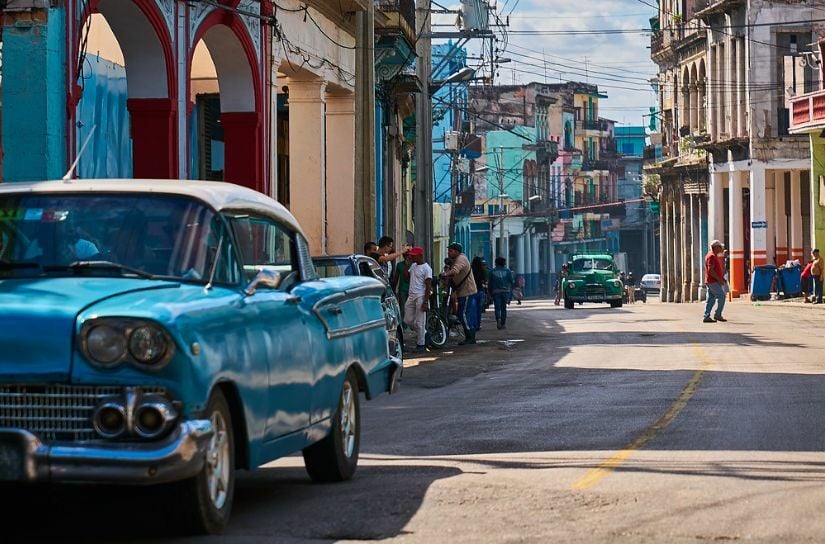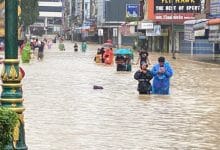Cuba turns to Russia amid fuel crisis and economic downturn

Equipped with a navy blue, Soviet-era Lada, Cuban cab driver Jorge Lloro’s everyday life is a stark reminder of Cuba’s Cold War-era relationship with Russia. There are roughly 100,000 Russian-made autos on this island nation, originally brought here as a workaround for the United States’ long-standing economic embargo. Today, grappling with a severe fuel crisis and a grim economic outlook, Cuba is once again reaching out to its old ally for assistance.
Yet, for Jorge, managing to keep his vehicle functional has been an uphill battle, with sparse and costly spare parts. Now, even procuring petrol has become an arduous task, sometimes spanning over days. There was a time when cars would queue up at petrol stations for several city blocks. The state had to resort to forming WhatsApp groups to manage impatient drivers in queues, with state officials taking down contact details and providing allotment numbers. The drivers were notified when it was their turn to refuel.
“I’m number 426,” said Jorge, as he headed towards a petrol pump in Havana. He had received an alert. The petrol station, however, remained vacant, due to the non-arrival of the fuelling tanker. “I don’t know why they even told us to come,” Jorge showed his disappointment.
“This system is inefficient and ineffective,” another driver, Joel Hernandez chimed in, mirroring the frustrations of those in the queue. “We’re not allowed to fill an entire tank, people often miss their number or aren’t informed when it’s their turn. It lacks proper organisation and infrastructure.”
The ongoing fuel crisis is stretching Cubans to the edge of desperation. This is merely an addition to their other burdens, such as food scarcity, inflation, and power shutdowns. While government mismanagement and the US embargo are blamed for Cuba’s chronic issues, the situation has been worsened by the downfall of the tourism sector due to Covid-19.
However, some Russian enterprises see an opportunity amidst this chaos. Recently, Cuba penned numerous deals with Russian companies in areas such as tourism, agriculture, and energy during a trade forum held in Havana. Among the arrangements was the granting of concessions to Russian firms to revamp dilapidated tourism facilities on the island, as well as launching joint ventures for the overhaul of an obsolete sugar mill, rum production and steelworks.
What intrigued Jorge, and others in similar predicaments, was a pact for Russia to provide an estimated 30,000 barrels of crude oil daily. This would make up for the deficiency in domestic consumption after Venezuela, a crucial socialist ally, decreased its crude oil exports to Cuba from 80,000 barrels a day in 2020 to about 55,000. Cuban state media is touting this as a sign of abiding ties between the two nations.
However, Omar Everleny, a preeminent independent economist in Cuba, is sceptical about the long-term utility of strengthening links with Moscow for the country. He predicts that Russian companies would anticipate full and timely payments for the funds being provided, which are desperately needed by Cuba. He said…
“These aren’t Soviet companies giving out government credits. They’re private Russian firms who will demand a proper return on their investment.”
The new economic alliances come during a politically tumultuous time. After Russia invaded Ukraine last year, Cuba emerged as one of the few Latin American nations voicing firm support for Moscow, an act warmly acknowledged by the Kremlin.
However, Everleny suggests that Cuba should avoid the blunder of relying on a single patron for overcoming its economic woes. He said…
“It happened first with Spain, then the US, then the Soviet Union, then Venezuela. You can’t depend on a single market.
“I think Cuba needs to make its own production strategy – one in which the small and medium-sized private businesses – Cuban businesses – should play a key role.”
At the closing of a scorching day at the petrol station, Jorge was finally successful in filling up his Lada. Much like the Cuban Revolution itself, it seems to be running on mere vapours – able to keep going only with Russia’s support, but in dire need of a considerable revamp in the upcoming years.
Latest Thailand News
Follow The Thaiger on Google News:


























